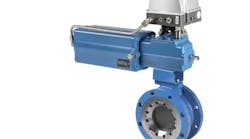A few years ago, I was hired as an expert witness based on something that I did not know but turned out that I actually knew.
A lawyer called and was in search of a valve expert on a case where multiple manual valves installed in a particular application failed after a short time in service. Let me emphasize that not only had the valves failed quickly but also their springs were actually broken — sometimes, in two places. However, identical valves were reportedly in service at another location without incident.
As an instrument engineer, I had experience with control valves in addition to teaching the subject some years ago as part of a flow measurement systems seminar, so the lawyer’s call was understandable. After attentively listening to the description of the problem, I politely declined the case, stating that my primary expertise was flow measurement and (potentially) throttling control valves, but not valves that are manually opened and closed.
About five minutes later, it dawned on me that I was qualified to handle this case. In particular, control valve expertise could be applied to the manual valve by recognizing that the operation of the manual valve could be analyzed as a control valve that operates either closed (easy to analyze) or 100% open. Further, there was likely only one failure mechanism that could cause the extensive damage so quickly — cavitation.
As it turned out, these suspicions served the client’s interests, so the lawyer hired me after we discussed my background and approach to analyzing the problem. More next month.
David W. Spitzer is a principal at Spitzer and Boyes, LLC, which offers engineering, focused market research, writing/editing white papers, strategic marketing consulting, distribution consulting, seminars and expert witness services for manufacturing and automation companies. Spitzer has written more than 400 technical articles and 10 books about flow measurement, instrumentation and process control. He can be reached at 845-623-1830 or via spitzerandboyes.com.


